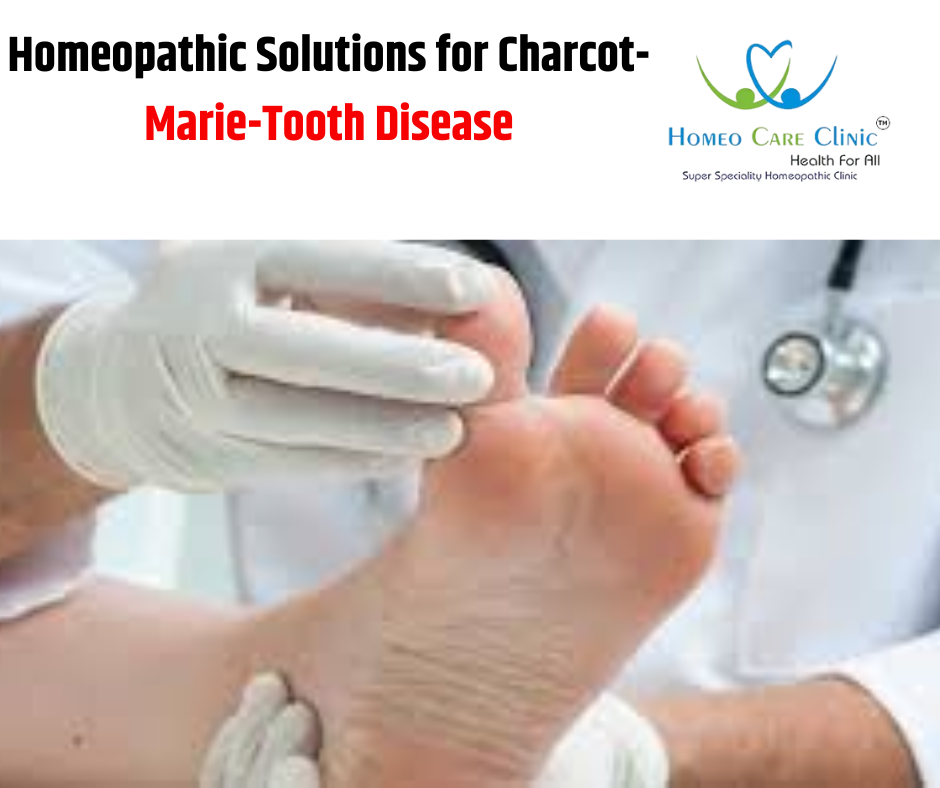Charcot-Marie-Tooth (CMT) disease, also known as hereditary motor and sensory neuropathy, is a group of inherited disorders that affect the peripheral nerves, leading to muscle weakness and sensory deficits. Named after the three physicians who first described it in 1886—Jean-Martin Charcot, Pierre Marie, and Howard Henry Tooth—CMT is one of the most common inherited neurological disorders, affecting approximately 1 in 2,500 people worldwide.
Causes:
CMT is primarily caused by genetic mutations that affect the structure and function of peripheral nerves. These mutations lead to abnormalities in the myelin sheath (the protective covering of nerve fibers) or the axons (the long projections of nerve cells), disrupting the transmission of signals between the brain, spinal cord, and muscles.
Symptoms:
The symptoms of CMT can vary widely depending on the specific genetic mutation involved and the severity of nerve damage. Common symptoms include:
Muscle weakness: Weakness in the muscles of the feet, lower legs, and hands is a hallmark feature of CMT. This can lead to difficulties with walking, running, gripping objects, and performing fine motor tasks.
Sensory deficits: Many individuals with CMT experience numbness, tingling, or loss of sensation in their hands and feet. This can affect their ability to detect pain, temperature, and touch.
Foot deformities: High arches (Pes cavus) and hammertoes are common foot deformities associated with CMT, which can contribute to balance problems and an increased risk of falls.
Muscle atrophy: Progressive muscle wasting (atrophy) can occur in individuals with CMT, particularly in the lower legs and hands, leading to a loss of muscle mass and strength over time.
Advantages of Homeopathy:
Homeopathy offers a holistic approach to managing the symptoms of CMT, addressing both the physical and emotional aspects of the condition. Homeopathy can help alleviate symptoms, improve overall well-being, and enhance the body’s natural healing mechanisms.
While homeopathic treatment should always be individualized by a qualified practitioner, some commonly used remedies for managing symptoms associated with CMT include:
Causticum: Causticum is indicated for individuals with CMT who experience weakness and stiffness in the muscles, along with contractures and deformities of the feet and hands. It can help improve mobility, flexibility, and muscle strength.
Gelsemium: Gelsemium is beneficial for individuals with CMT who experience weakness and trembling in the muscles, particularly in the lower limbs. It can also address symptoms of anxiety, fearfulness, and anticipatory anxiety before events or activities.
Plumbum metallicum: Plumbum met is useful for individuals with CMT who experience severe muscle weakness, atrophy, and paralysis, along with shooting pains and cramps in the limbs. It can help improve muscle tone, coordination, and motor function.
Cuprum metallicum: Cuprum met is indicated for individuals with CMT who experience muscle cramps, spasms, and twitching, along with weakness and trembling in the limbs. It can also address sensory symptoms such as numbness and tingling.
Phosphorus: Phosphorus is beneficial for individuals with CMT who experience weakness and numbness in the limbs, along with burning or shooting pains. It can help improve circulation, reduce inflammation, and support nerve regeneration.
conclusion
In conclusion, Homeo Care Clinic offers a holistic approach to treating Charcot-Marie tooth syndrome. The remedies mentioned above can treat the underlying causes of the condition and offer relief from the discomfort. However, it is important to consult a qualified homeopathic practitioner for the correct dosage and duration of treatment. Homeo Care Clinic provides comprehensive care for various ailments, including Charcot Marie tooth syndrome, and offers customized treatment plans based on individual requirements.







